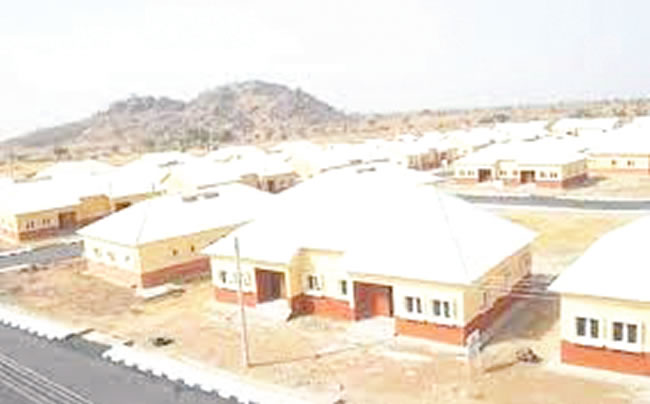As Nigeria celebrates 62 years of national existence, built environment experts have repeatedly denounced the failure of successive governments to provide affordable housing to citizens.
Many pundits, who have expressed concern over the huge housing deficit in the country, have lamented that at 62, the housing sector in Nigeria has failed to grow with the population rate.
They also noted that the housing gap continued to widen.
Furthermore, they pointed out that there is no approved and published master plan, adding that less than 50 percent of housing projects represent the affordability of low- and middle-income people.
Project Manager, WAP Ltd Rwanda, Harmony Kunu also said that available and new alternative building material technologies are not widely published and deployed to developers.
According to him, the lack of government support with necessary infrastructure and incentives has also discouraged mass housing projects.
“No formalized and published building permit approvals are in place and where some state governments have some sort of approval, most are mispriced in terms of the cost of obtaining approvals.
“Only in Nigeria do they cost the number of houses and the number of floors to get planning permission for a housing project.
“World practice is that a rate is charged for obtaining planning permission for the project and not individual houses and number of floors. Major factor that can also affect affordability,” said Project Manager, WAP Ltd Rwanda, HarmonyKunu.
Looking at the country’s housing market at 62, US social housing commentator KunleFaleti said there was an urgent need to address the affordable housing crisis with policy.
He said professionals have concluded that housing inaccessibility has reached a state of crisis in Nigeria.
As an advocate for affordable housing, he stated that he strongly believes that a program/initiative such as the Low Income Housing Tax Credit (LIHTC) practiced in the United States of America and l he introduction of a targeted and deliberate social housing policy could increase the supply of affordable housing. supply.
“Furthermore, given the impacts of inflation, unemployment and ever-increasing interest rates on mortgages, as well as the high cost of rental housing markets, we believe that aggressive regulatory reform , ‘housing subsidies’ (with cautious optimism) and some kind of emergency government assistance are needed,” he said.
He pointed to the shortage of entry-level owner-occupied homes being driven by land use and single-family home zoning regulatory barriers.
This, he said, presents significant hurdles for property developers wishing to build such starter homes.
“The lack of these homes contributes to the housing crisis.
Many builders are replacing smaller, more affordable single-family homes with larger, more expensive, more profitable homes because the costs are very high for the developer. Also, rising land prices, construction costs, government fees and local regulations are not helping matters, Faleti said.
Sixty-two years after independence, the US-based expert said Nigeria’s housing market crisis had reached a point where policy intervention was urgently needed, noting that demand for housing had exceeded the offer.
According to him, real estate developers needed a solution that would make construction more feasible.
He pointed out that inflation, rising interest rates and the unemployment rate have pushed house prices to historic highs.
In his presentation, the former President of the Nigerian Institution of Estate Surveyors and Valuers, Lagos Branch, Mr. Samuel Effiong Ukpong said the country has made progress in infrastructure development and the real estate sub-sector, but that it couldn’t be called huge.
He said: “62 years is a reasonable time and compared to our pace of development in both sectors, we have done very poorly.
“For example, not up to 5% of Nigeria’s landmass is developed after 62 years.
“What are the additional roads that are built each year to add to the stock inherited from the colonial masters after independence until today?
“What is the current state of these legacy roads and infrastructure? Can we name the companies that operated in the country 20 or 30 years ago, and say what their status is today for performance indicators?
“How much housing is needed each year and how much is provided each year? How would anyone rate our housing and infrastructure maintenance culture? Is there an alternative to the Lagos – Ibadan highway and why does it take forever to complete?
“Is the airport under construction an airport compared to modern airports in comparable countries or are they landing strips? »
He pointed out that many things such as refineries, rolling mills, aluminum factories and power stations in the country among others have refused to operate 62 years after independence.

